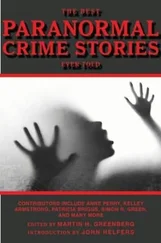“It’s his own logic he loves.”
But then, my mother always was the unromantic one.
Murder-Two
JOYCE CAROL OATES
In John Guare’s play Bosoms and Neglect , two deeply neurotic characters are discussing neglected writers. When one advances the name of Joyce Carol Oates, the other demands (paraphrasing), how can she be neglected when she writes a book a week? From the publication of her first novel By the North Gate (1963), Joyce Carol Oates (b. 1938) has been the most prolific of major American writers, turning out novels, short stories, reviews, essays, and plays in an unceasing flow as remarkable for its quality as its volume. Writers who are extremely prolific often risk not being taken as seriously as they should — if you can write it that fast, how good can it be? Oates, however, has largely escaped that trap, and even her increasing identification with crime fiction, at a time that the field has attracted a number of other mainstream literary figures, has not damaged her reputation as a formidable serious writer.
Many of Oates’s works contain at least some elements of crime and mystery, from the National Book Award winner Them (1970), through the Chappaquiddick fictionalization Black Water (1992) and the Jeffrey Dahmer-inspired serial-killer novel Zombie (1995), to her controversial 738-page fictionalized biography of Marilyn Monroe, Blonde (2000). The element of detection becomes explicit with the investigations of amateur sleuth Xavier Kilgarvan in the 1984 novel The Mysteries of Winterthurn which, the author explains in an after-word to the 1985 paperback edition, “is the third in a quintet of experimental novels that deal, in genre form, with nineteenth- and early-twentieth-century America.” Why would a serious literary writer like Oates choose to work in such “deliberately confining structures?” Because “the formal discipline of ‘genre’…forces us inevitably to a radical re-visioning of the world and the craft of fiction.” Oates, who numbers among her honors in a related genre the Bram Stoker Award of the Horror Writers of America, did not establish an explicit crime-fiction identity until Lives of the Twins (1987; British title Kindred Passions ) appeared under the pseudonym Rosamund Smith. Initially intended to be a secret, the identity of Smith was revealed almost immediately, and later novels were bylined Joyce Carol Oates (large print) writing as Rosamund Smith (smaller print).
Among the key attributes of the astonishingly versatile Oates is her insight into deeply troubled adolescents, a quality “Murder-Two” demonstrates, along with her vivid descriptive style and her unconventional way with a crime-fiction situation.
This, he swore.
He’d returned to the town house on East End Avenue after eleven p.m. and found the front door unlocked and, inside, his mother lying in a pool of squid ink on the hard-wood floor at the foot of the stairs. She’d apparently fallen down the steep length of the stairs and broken her neck, judging from her twisted upper body.
She’d also been bludgeoned to death, the back of her skull caved in, with one of her own golf clubs, a two-iron, but he hadn’t seemed to see that, immediately.
Squid ink ? — well, the blood had looked black in the dim foyer light. It was a trick his eyes played on his brain sometimes when he’d been studying too hard, getting too little sleep. An optic tic .
Meaning you see something more or less, and valid, but it registers surreally in the brain as something else. Like in your neurological programming there’s an occasional bleep.
In Derek Peck, Jr.’s, case, confronted with the crumpled, lifeless body of his mother, this was an obvious symptom of trauma. Shock, the visceral numbness that blocks immediate grief — the unsayable, the unknowable. He’d last seen his mother, in that same buttercup-yellow quilted satin robe that had given her the look of an upright, bulky Easter toy, early that morning, before he’d left for school. He’d been away all day. And this abrupt, weird transition — from differ-ential calculus to the body on the floor, from the anxiety-driven jokes of his Math Club friends (a hard core of them were meeting later weekdays, preparing for upcoming SAT exams) to the profound and terrible silence of the town house that had seemed to him, even as he’d pushed open the mysteriously unlocked front door, a hostile silence, a silence that vibrated with dread.
He crouched over the body, staring in disbelief. “Mother? Mother !”
As if it was he, Derek, who’d done something bad, he the one to be punished.
He couldn’t catch his breath. Hyperventilating! His heart beating so wildly he almost fainted. Too confused to think, Maybe they’re still here, upstairs ? for in his dazed state he seemed to lack even an animal’s instinct for self-preservation.
Yes, and he felt to blame, somehow. Hadn’t she instilled in him a reflex of guilt? If something was wrong in the household, it could probably be traced back to him . From the age of thirteen (when his father, Derek Senior, had divorced his mother, Lucille, same as divorcing him ), he’d been expected by his mother to behave like a second adult in the household, growing tall, lank, and anxious as if to accommodate that expectation, and his sand-colored body hair sprouting, and a fevered grimness about the eyes. Fifty-three percent of Derek’s classmates, girls and boys, at the Mayhew Academy, were from “families of divorce,” and most agreed that the worst of it is you have to learn to behave like an adult yet at the same time a lesser adult, one deprived of his or her full civil rights. That wasn’t easy even for stoic streetwise Derek Peck with an IQ of, what was it? — 158, at age fifteen. (He was seventeen now.) So his precarious adolescent sense of himself was seriously askew: not just his body image (his mother had allowed him to become overweight as a small child, they say that remains with you forever, irremediably imprinted in the earliest brain cells), but more crucially his social identity . For one minute she’d be treating him like an infant, calling him her baby, her baby-boy, and the next minute she was hurt, reproachful, accusing him of failing, like his father, to uphold his moral responsibility to her.
This moral responsibility was a backpack loaded with rocks. He could feel it, first fucking thing in the morning, exerting gravity even before he swung his legs out of bed.
Crouched over her now, badly trembling, shaking as in a cold wind, whispering, “Mommy? — can’t you wake up? Mom- my , don’t be—” balking at the word dead for it would hurt and incense Lucille like the word old , not that she’d been a vain or frivolous or self-conscious woman, for Lucille Peck was anything but, a woman of dignity it was said of her admiringly by women who would not have wished to be her and by men who would not have wished to be married to her. Mommy, don’t be old ! Derek would never have murmured aloud, of course. Though possibly to himself frequently this past year or so seeing her wan, big-boned, and brave face in harsh frontal sunshine when they happened to descend the front steps together in the morning, or at that eerie position in the kitchen where the overhead inset lights converged in such a way as to cruelly shadow her face downward, bruising the eye sockets and the soft fleshy tucks in her cheeks. Two summers ago when he’d been away for six weeks at Lake Placid and she’d driven to Kennedy to pick him up, so eager to see him again, and he’d stared appalled at the harsh lines bracketing her mouth like a pike’s, and her smile too happy and what he felt was pity and this, too, made him feel guilty.
Читать дальше












